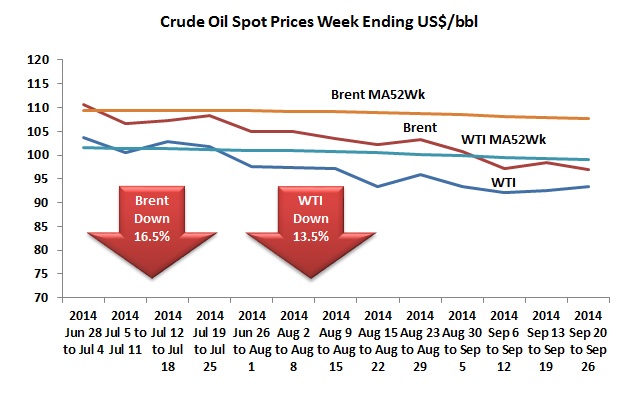
The National Environmental Licensing Agency (ANLA) has rejected 48% of the licenses presented to it for approval, and 118 projects are on standby due to the approval process. The majority are related to the oil industry.
An international expert visited Colombia and said hydrocarbons firms must change their strategies to get better results from Corporate Social Responsibility (CSR) programs, while an ANH-UN agreement has led to potable water work in LA Guajira. These and other stories in our regular summary of CSR programs related to the industry.

The count dropped this week to 39, above long-term averages but below the recent average and the shift in geographic distribution continues.
Most of the debate surrounding fracking and unconventional production has centered on the extraction of crude, but the Colombian Association of Natural Gas (Naturgas) Eduardo Pizano says its just as important for the future of the gas industry as well.
A one-sided report in a national newspaper looks at another area where opposition to mining and hydrocarbons activities is increasing, Bogotá’s own Sumapaz.
The union has been aggressively promoting an alliance it has formed to pressure the government to revert the Rubiales field back to Ecopetrol (NYSE:EC), presenting the field’s production as a remedy to a tighter government budget.
Strange messages coming in and out of the email account of the government’s lead negotiator Humberto de la Calle tipped authorities off to electronic eavesdropping of his account. De la Calle charges that forces are at work to sabotage the peace talks.
The National Hydrocarbons Agency (ANH) says it held a meeting with the Ministry of Defense, Interior ministry, police and military forces and industry representatives to improve the scenario in the areas of influence of hydrocarbons projects.

Both global benchmark oil prices, WTI and Brent, slid all through the third quarter finishing 13.5% and 16.5% (respectively) below where they were at the end of the second quarter.
The outgoing director of the Energy and Gas Regulation Commission (CREG) Carlos Fernando Eraso says that the new regulatory framework in place for the natural gas industry means that companies have no impediment to investment in the sector.